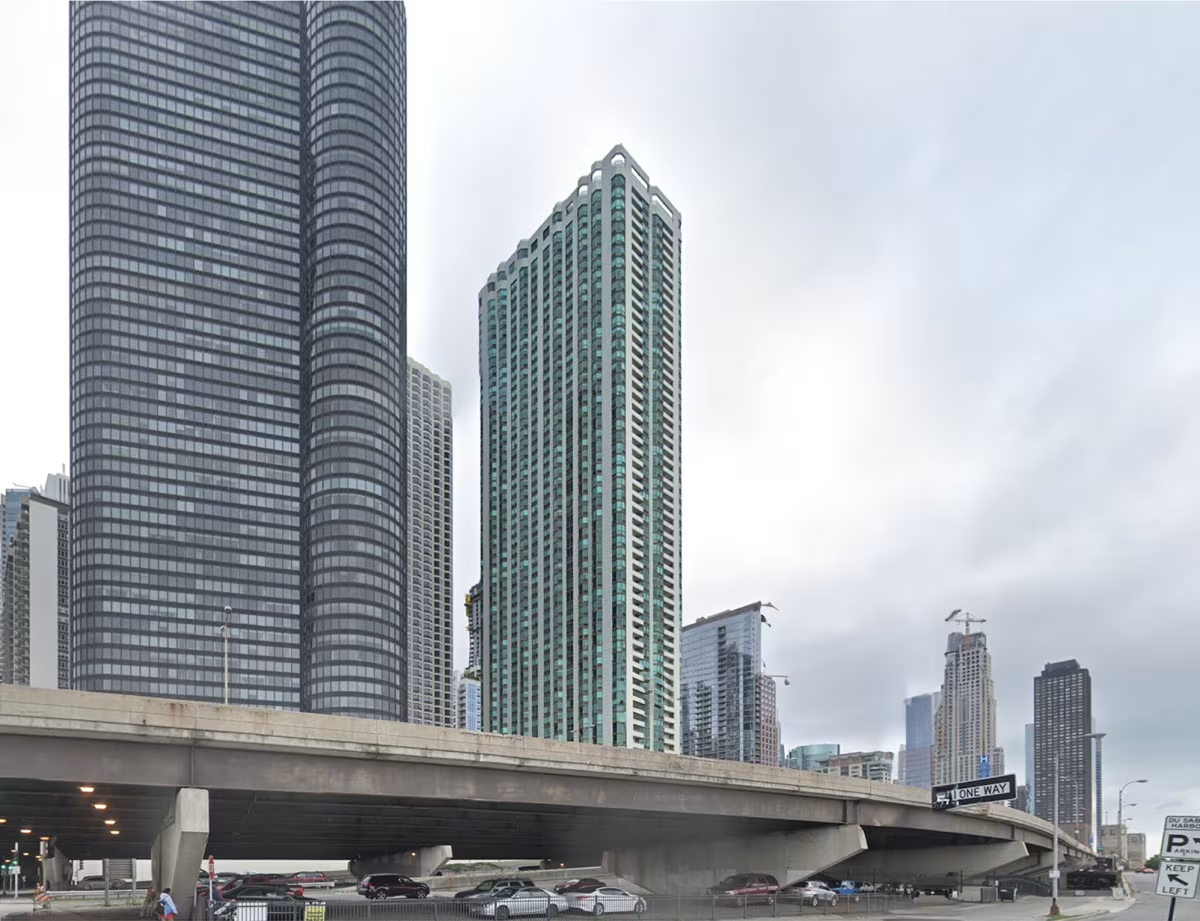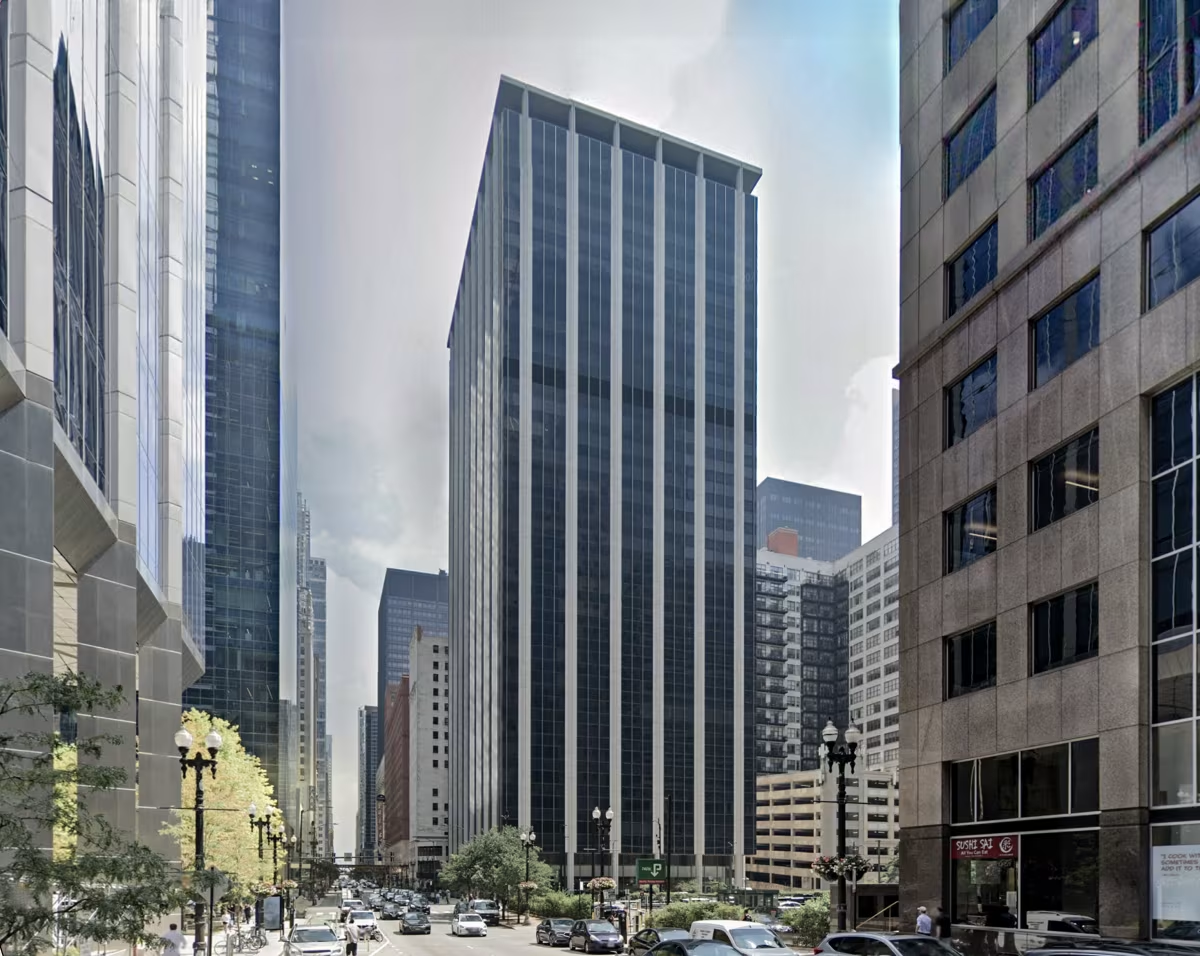The Parkshore vs The Bell Building


Comparing the The Parkshore and the The Bell Building is interesting because they both rise in Chicago, IL, yet they were conceived by two different design teams, Barancik Conte and Holabird & Root, and were completed at different points in time. They were finished over two decades apart.
This contrast within the same city allows us to see how different creative minds interpreted the evolving needs of Chicago across time.
Let's take a closer look!
Height & Size
The The Parkshore is clearly the larger tower of the two, both in terms of height and number of floors. It rises to 554ft (169m) with 56 floors above ground, while the The Bell Building reaches 427ft (130m) with 31 floors above ground.
Of course, each project may have faced different briefs or regulatory constraints, which we don't really know about and could also explain the outcome.
Architectural Style
Both the The Parkshore and the The Bell Building were designed in line with the aesthetic conventions of the Modern style.
Both buildings were completed when the Modern style was already past its peak. This makes them feel like late echoes of the movement, more reflective of continuity or nostalgia than of cutting-edge design at the time.
Uses
The The Parkshore is primarily residential, while the The Bell Building is primarily .
Originally, the The Bell Building was designed for commercial, but over time it was converted to . The The Parkshore by contrast has maintained its original role.
The The Parkshore offers 483 residential units.
The The Parkshore also provides 371 parking spaces.
Structure & Facade
The two towers rely on different structural systems, reflecting distinct engineering strategies.
The The Parkshore uses a Frame structural system, which relies on a regular grid of columns and beams to sustain its weight, while the The Bell Building uses a Framed Tube In Tube system, that combines a strong central core with a perimeter tube of columns.
Yet, when it comes to their facade, they both employed the same solution, a Curtain Wall facade.
A curtain wall is a non-load-bearing facade hung from the structural frame. It is anchored to floor slabs and transfers only its own weight and wind loads, allowing for sleek, glassy exteriors.
| The Parkshore | The Bell Building | |
|---|---|---|
| Barancik Conte | Architect | Holabird & Root |
| 1991 | Year Completed | 1966 |
| Modern | Architectural Style | Modern |
| 56 | Floors Above Ground | 31 |
| 169 m | Height (m) | 130 m |
| 87,886 m² | Usable Area (m²) | 143,340 m² |
| Frame | Structure Type | Framed Tube In Tube |
| Reinforced Concrete | Vertical Structure Material | Steel |
| Reinforced Concrete | Horizontal Structure Material | Reinforced Concrete |
| No | Facade Structural? | Yes |
| Glass, Precast Concrete | Main Facade Material | Glass, Marble |
| Power Construction Company | Main Contractor | A.L. Jackson |
| Alfred Benesch & Company | Structural Engineer | Frank Henderson |
| IL | State | IL |
| Chicago | City | Chicago |
| 195 North Harbor Drive | Address | 225 W. Randolph St |